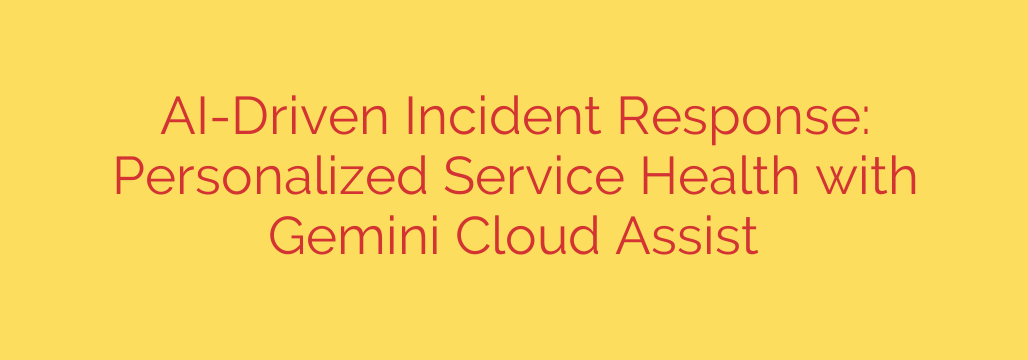
Managing complex IT systems and ensuring applications are always running smoothly is a significant challenge for today’s operations teams. When incidents occur, they can disrupt services, impact users, and consume valuable time as teams race to diagnose and resolve the issue. The pressure to quickly restore service is immense, but wading through mountains of data, logs, and alerts can make finding the root cause a slow, manual process.
This is where the power of Artificial Intelligence (AI) is transforming incident response. By leveraging advanced AI capabilities, IT teams can move beyond traditional, reactive approaches to a more intelligent and proactive way of maintaining service health.
AI-powered assistance acts like a highly skilled co-pilot for IT professionals. It can automatically analyze vast amounts of operational data from various sources – logs, metrics, traces, and alerts – to identify patterns and anomalies that humans might miss. Crucially, it doesn’t just flag problems; it helps pinpoint exactly what went wrong and why.
This deep analysis enables the AI to provide personalized insights tailored to your specific environment. Instead of generic alerts, you get context-rich information about the incident, its potential impact, and relationships between affected components. The AI can correlate seemingly unrelated events, summarize complex findings into easily digestible summaries, and even suggest actionable recommendations for troubleshooting steps or potential fixes based on historical data and best practices.
The benefits of this AI-driven approach are transformative. IT teams can achieve a much faster Mean Time To Resolution (MTTR) because the AI drastically reduces the time spent on manual investigation and diagnosis. This leads to improved application availability and reliability, minimizing downtime and its associated costs. Furthermore, by automating routine data analysis and correlation, the AI frees up skilled personnel to focus on more strategic tasks, reducing operational burden.
Beyond just responding to incidents, AI also contributes to proactive service health management. By continuously monitoring systems and learning from past incidents, the AI can potentially identify early warning signs or potential issues before they escalate into major outages. This allows teams to address problems before they impact users, shifting from reactive firefighting to proactive prevention.
Ultimately, integrating AI into incident response workflows provides IT operations teams with the intelligence and efficiency needed to manage modern, complex environments effectively. It ensures critical services remain healthy, available, and performing optimally, directly supporting business continuity and user satisfaction.
Source: https://cloud.google.com/blog/products/devops-sre/gemini-cloud-assist-integrated-with-personalized-service-health/








